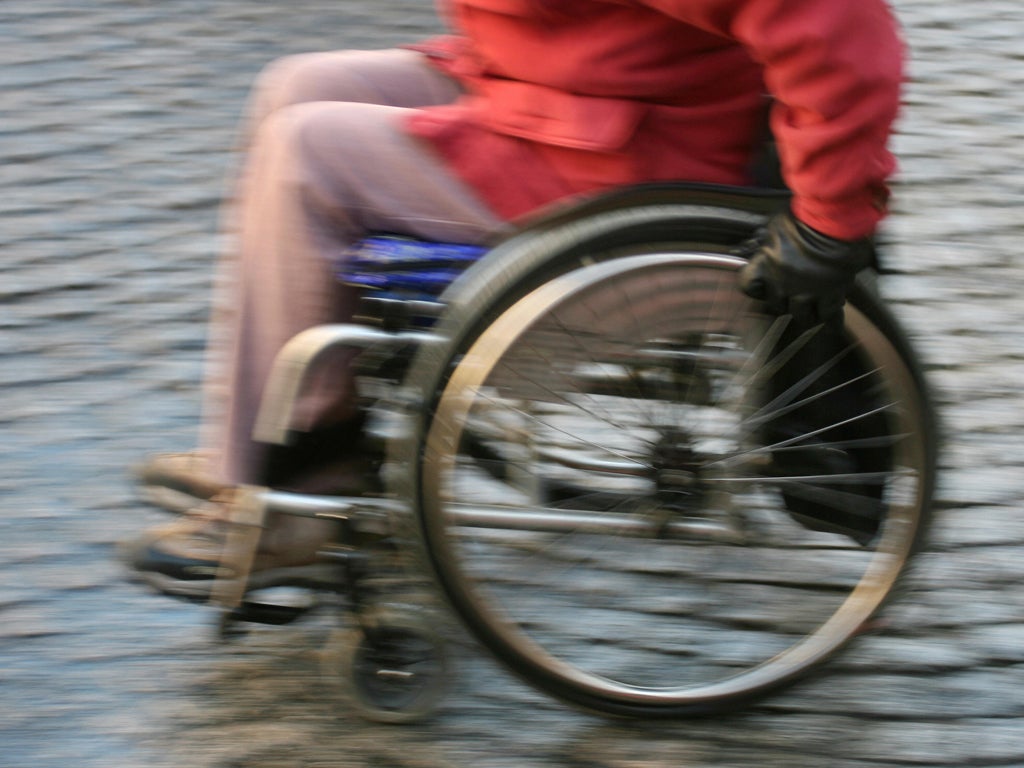Hate crime awareness week: what we must do to stop any disabled person living in fear
In 2012 the Home Office study of the British Crime Survey found that there are 65,000 disability hate crimes per year in England and Wales alone

It has been just over ten years since the Criminal Justice Act of 2003 embedded the concept of hate crime’ into criminal law. Nearly twenty years since the murder of Stephen Lawrence brought the issue to the top of the political agenda. Six years ago, the deaths of Fiona Pilkington and her daughter Francecca Hardwick highlighted the ongoing harassment and abuse that many disabled people continue to face today.
In a speech in October 2010, the then Director of Public Prosecutions Sir Ken (now Lord) MacDonald referred to disability hate crime as a “scar on the conscience of the criminal Justice system”. Each of these events has been vital in improving our response to hate crimes against disabled people. However, much more is needed.
Back in 1999, Mencap published their first report on the issue of hate crime, ‘Living in fear’, which revealed that nearly 9 in 10 of those surveyed with a learning disability had been bullied in the past year. The tragic deaths of Francecca and Fiona in 2007 were exactly what Mencap had warned about almost a decade earlier. They had been victims of seven years of verbal abuse and harassment from young people who lived locally. They asked for help but didn’t get it. The consequences were fatal.
In the last few years, there have been significant developments in how hate crime is tackled. In 2011, Mencap launched the ‘Stand by me’ campaign to end disability hate crime. To date, 40 out of the 44 police services in England, Wales and Northern Ireland have signed up to the ‘Stand by me’ police promise to improve how they serve people with a learning disability and tackle hate crime.
The huge support for the police promise is extremely encouraging, but it alone is not enough. In 2012 the Home Office study of the British Crime Survey found that there are 65,000 disability hate crimes per year in England and Wales alone and victims of hate crime are four times more likely to suffer serious psychological harm from the impact of those crimes. A report this week from the Equality and Human Rights Commission puts this figure even higher, at 72,000. Despite the efforts of professionals and advocates, under-reporting and recording remains one of our greatest challenges: less than 1-in-35 of these crimes are recorded in the Home Office data for 2011/12, where the police recognised just 1,744 disability hate crimes.
Resources to encourage and assist people to report hate crimes against them are available. True Vision is an online reporting system and information source, which people can use to report all types of hate crime. It is also used at third party reporting centres, such as the Citizens Advice Bureau or council ‘one stop shops’, where people can report hate crimes if they do not feel confident about going to a police station or phoning 999. Mencap has produced an easy read guide on what to do if you are a victim of hate crime with information on True Vision, third party reporting centres and other ways people can report these crimes.
The police have also embraced change in many areas, improving their practices to respond to growing awareness and concern about disability hate crime. In Northamptonshire, the police provided specific learning disability hate crime training for officers led by a man with a learning disability who was himself a victim of hate crime and was not happy with how it was handled by the police. It is vital that all police forces provide similar training so examples of best practice like this become the norm.
Behind the statistics and high-profile cases that hit the headlines, there are countless stories of hostility preventing someone with a learning disability having the opportunity to achieve the things they want out of life. People like Keith who hoped he would get on with his new neighbours but instead was shouted at, kicked and punched, or Di, who couldn’t sleep because she was scared of what people would do.
People with a learning disability and their families, disability organisations like Mencap, the police and prosecutors need to work together to increase reporting and convictions, keep the issue in the spotlight, and strive towards a society in which no group of people is excluded, discriminated against or victimised. This week is hate crime awareness week, so it is right that we take stock and look ahead to what action we must take now, so disabled people can live their lives free from fear, as we all have the right to do.

Join our commenting forum
Join thought-provoking conversations, follow other Independent readers and see their replies